Nourishing Kitchen - Vol. 2 / P4

Filtering the Facts: Kidney Disease & Nutrition
Considerations / P6
Wellington Terrace LTC Home Spotlight / P18
Thanksgiving Day Theme Menu & Recipes / P22


Nourishing Kitchen - Vol. 2 / P4

Filtering the Facts: Kidney Disease & Nutrition
Considerations / P6
Wellington Terrace LTC Home Spotlight / P18
Thanksgiving Day Theme Menu & Recipes / P22

As we step into the vibrant season of Fall, let’s embrace fresh new ideas in healthcare & senior living! After so much time consumed by the challenges of Covid-19, it’s time to shift our focus back to the plate. Let’s reignite the joy of dining and delight our tastebuds with a burst of creativity. You can find some great holiday theme menu ideas on page 19.

With the challenges we’ve faced, it’s crucial to restart and refresh our approach to food. Let’s explore innovative recipes, seasonal ingredients, and diverse flavors that bring excitement to every meal. By prioritizing nutrition and culinary excellence, we can enhance the overall well-being of residents and patients. For some innovative and diverse recipes, check out the Nourishing Kitchen series found on page 2.
With the arrival of Fall, let’s celebrate the power of food to nourish both body and soul. Together, let’s create a dining experience that not only satisfies hunger but also brings happiness and fulfilment. From comforting soups to hearty stews, from crisp autumn salads to delectable desserts, let’s infuse our menus with a renewed sense of creativity and passion. We’ve included our Thanksgiving Day Theme Menu and recipes to provide some of this inspiration on page 11.
Together let’s embark on this culinary journey, where every bite is a celebration of life. Here’s to a Fall filled with fresh ideas, mouthwatering flavors, and a renewed commitment to culinary excellence.
Warmest regards,
Sarah Emmerton Vice President, Healthcare & Senior Living
Sysco is committed to providing the best selection of fresh fruits and vegetables, while ensuring sustainability, food safety, and traceability throughout our supply chain. Our produce is sourced from local and regional farmers, as well as trusted global suppliers, to bring you a vast array of flavours, colours, and textures that your customers will love.


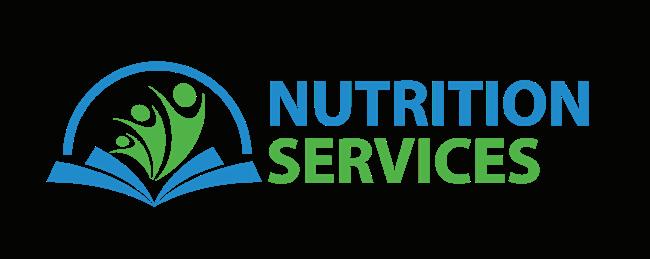








Brussels Sprouts, Sweet Potato & Quinoa Bowl
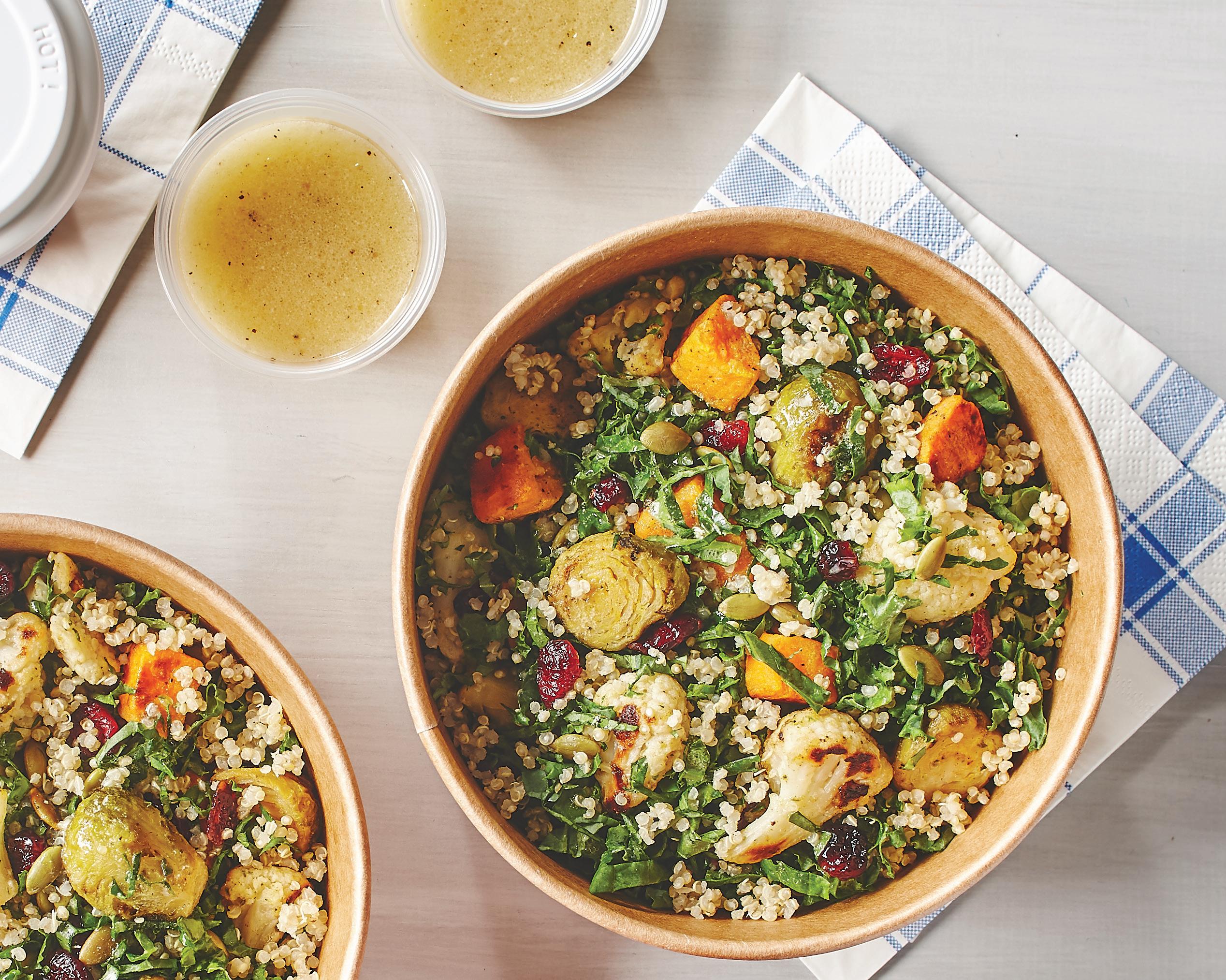
Giving guests a helping of healthier fall flavours is easy with Arctic Gardens. Our convenient frozen vegetables are picked at their peak of freshness to help you create nutritious dishes that always taste delicious.

7235386
Find more inspiration for deliciously simple recipes at arcticgardensfoodservice.ca

 BY: KAITLIN CHARD, MAN, RD, NUTRITION SERVICES CONSULTANT
BY: KAITLIN CHARD, MAN, RD, NUTRITION SERVICES CONSULTANT
Did you know that 1 in 10 Canadians are living with kidney disease? That’s about 4 million people.1 Given the natural reduction in kidney function as we age, we know that kidney disease is often more prevalent in those greater than 60 years of age, compared to the general population.2 Research estimates that over 50% of seniors over the age of 75 are believed to have kidney disease.2
• The kidneys are 2 bean-shaped organs responsible for filtering and removing waste products, regulating fluid and electrolyte balance along with blood pressure and red blood cell production.3

• Each kidney contains about a million functional units called nephrons. Nephron contains a tiny filtering unit called the glomerulus. As blood enters the kidneys, it is filtered and remaining fluid flows towards the blood through tubules, where many substances like sodium, potassium, and water are either removed or added back to the blood based on the body’s needs. The final waste products are removed as urine.3
1. Filter and eliminate waste products: The body produces many waste products as a result of daily functioning. These waste products are filtered and eliminated by the kidneys.
2. Regulate fluid balance: The body maintains ideal fluid balance by retaining or removing water as necessary.
3. Regulate blood pressure: In addition to the impact fluid balance has on regulating blood pressure, the kidneys also produce a hormone called renin, which is responsible for blood pressure regulation.
4. Regulate electrolyte balance: Electrolytes are minerals in the body that support chemical reactions and maintain fluid balance inside and outside of your cells. The kidneys maintain the ideal balance of electrolytes.
5. Regulate red blood cell production: The kidneys produce an important hormone called erythropoietin, which stimulates bone marrow to produce red blood cells that carry oxygen from the lungs to all parts of the body.
6. Regulates Vitamin D and Calcium: The kidneys activate Vitamin D in the body so that we can absorb Calcium and Phosphorus, which helps build and maintain healthy bones.
Kidney disease is characterized as a variety of conditions that may damage the filtering units of the kidneys, ultimately impacting the ability to remove waste products and excess fluids from the body. The severity of kidney disease can range from mild to severe, to complete kidney failure.4,5
Kidney disease is categorized as either Acute Kidney Injury (AKI) or Chronic Kidney Disease (CKD) – dependent on the onset, causes and symptoms. Treatment and nutritional goals will also vary based on a patient’s diagnosis.4,5
Acute Kidney Injury (AKI)
• Onset is sudden with rapid deterioration but usually reversible
• Common causes include damage to the kidneys and functional units, urinary tract obstruction and pre-renal disease
Chronic Kidney Disease (CKD)
• Onset is gradual (over months to years)
• Causes include diabetic complications, hypertension, polycystic kidney disease or a nephrotoxin exposure
CKD is also categorized from stage 1 to 5, dependent on the degree of loss in kidney function. The stage of CKD is determined by a variety of biometric values along with the risk of kidney failure.
Nutritional management is geared towards monitoring and maintaining the following:4
• Optimal nutritional status
• Control of blood pressure

• Electrolyte balance
• Bone and heart health
• Uremic symptoms (high levels of urea in the blood): Nausea, vomiting, fatigue, weight loss, muscle cramps and more
Nutrition management of kidney disease will vary based on age, medical history, medications, kidney function, treatment options (ie. hemodialysis) and more. It is important to always consult a registered dietitian to develop a specific nutrition care plan for individual needs.
1. Protein: Protein is an essential macronutrient, responsible for healthy weight and muscle maintenance, wound healing, and immune function. However, the metabolism of protein in the body leads to waste products such as ammonia, urea, uric acid and creatinine – all of which are excreted by the kidneys.6 These waste products can build up in the blood when not filtered out by the kidneys causing a variety of symptoms and causing damage to the kidneys.6 Protein recommendations are based on individual needs, stage of CKD and other interventions, however due to the waste products that can accumulate in the blood, a lower protein diet may be recommended.6
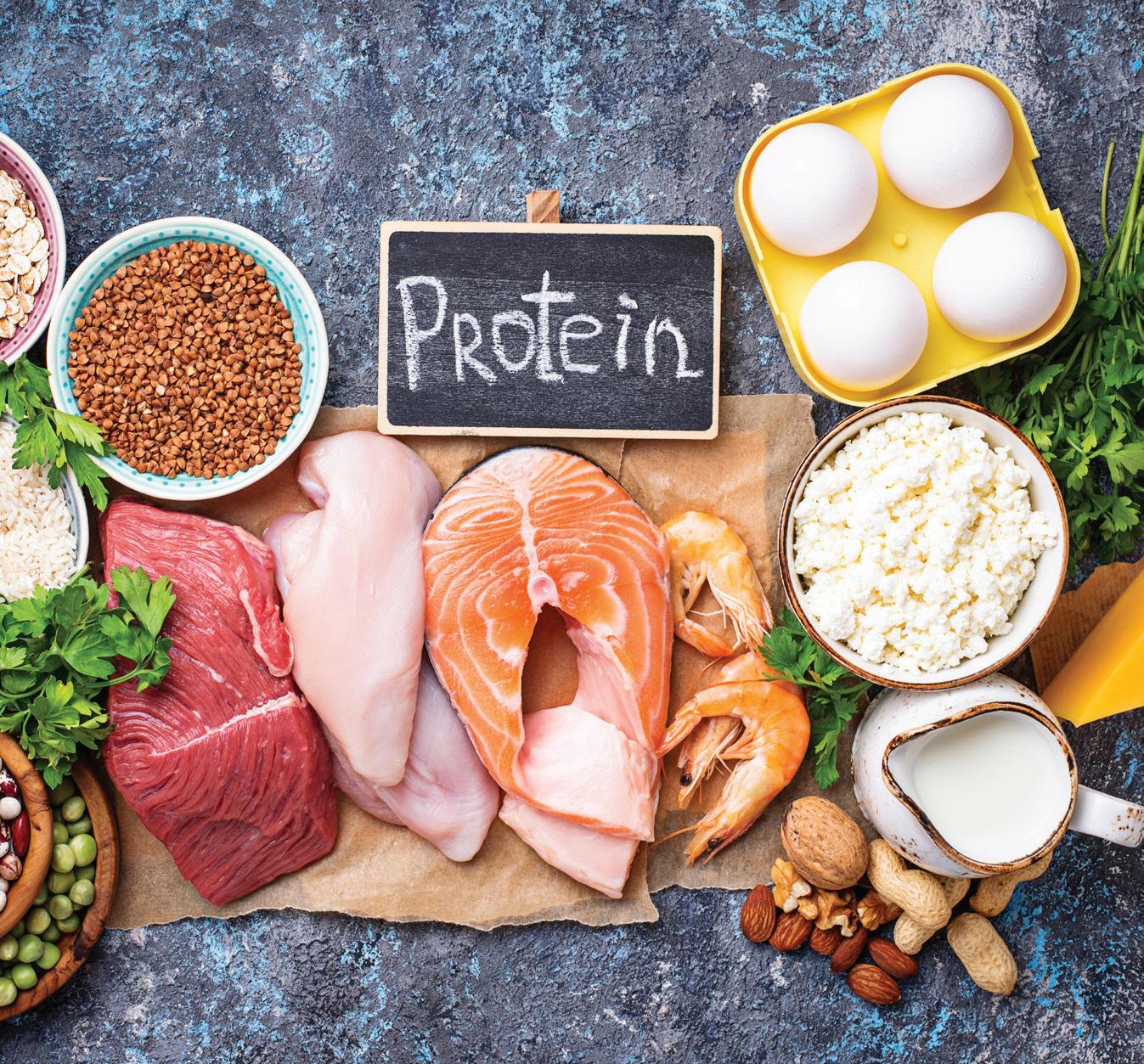
2. Sodium: Sodium is an important mineral and electrolyte necessary for maintaining healthy fluid balance throughout the body, along with normal muscle and nerve function.7 As mentioned, the kidneys function to balance electrolytes and therefore a decrease in kidney function impacts the ability to remove excess sodium from the blood.7,8

3. Phosphorous: Phosphorous is a mineral important for bone health, energy metabolism and tissue repair.9 With impaired function of the kidneys, excess phosphorus cannot be properly filtered from the blood. As a result, excess phosphorus can lead to complications such as weakening of bones, calcium deposits in blood vessels, lungs, heart or eyes. Phosphorous is found in many protein-rich foods or as an additive found in fast foods or ready to eat foods.7,9
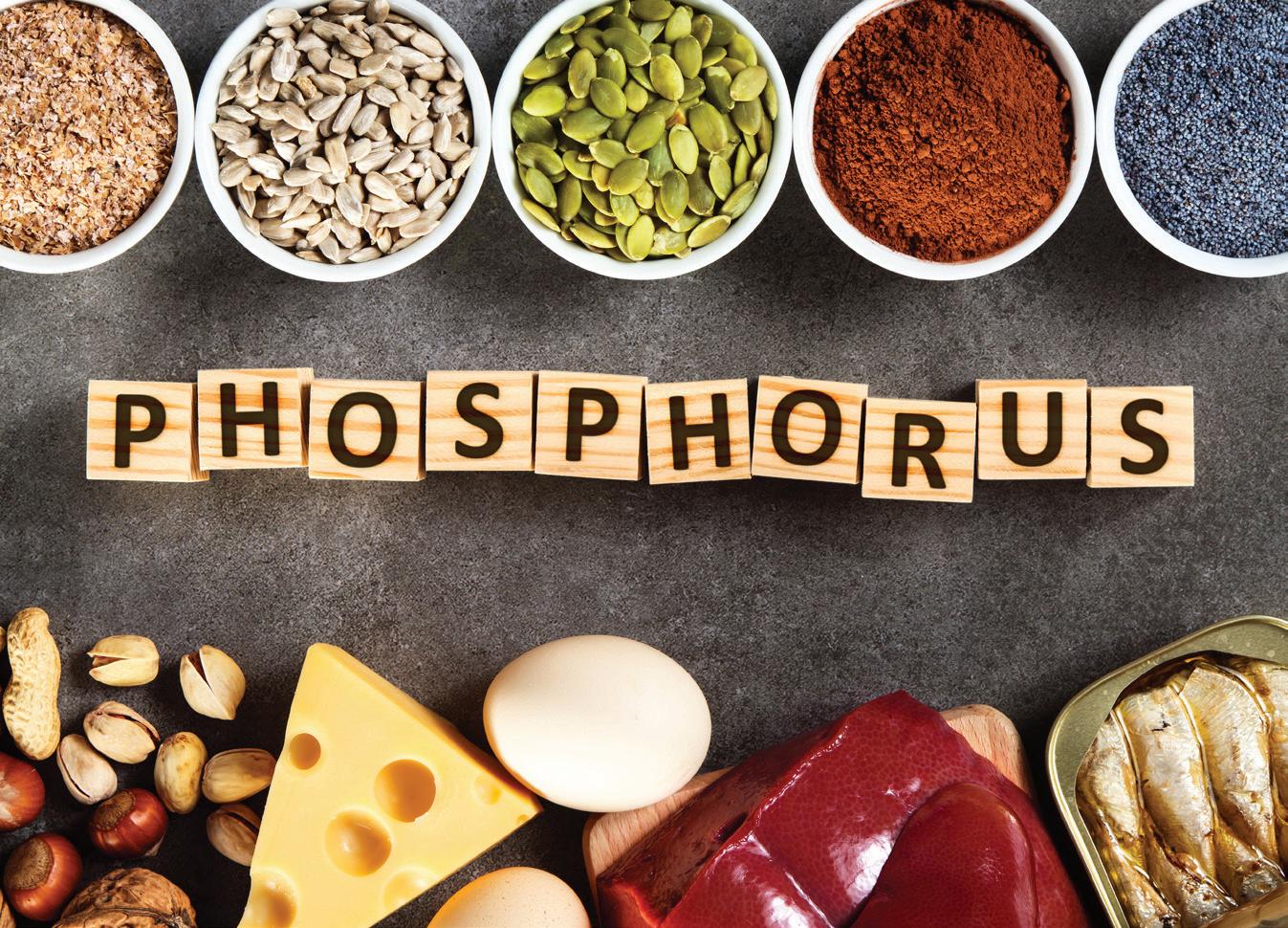
4. Potassium: Potassium is a mineral important for nerve and muscle health. Similar to other minerals discussed, impaired kidney function may lead to increased levels of potassium in the blood, which can be dangerous. High potassium foods include bananas, oranges, potatoes, avocado , and beans, among others. Potassium may also be used as an additive in salt substitutes used in foods like deli meats or low sodium marketed products.8
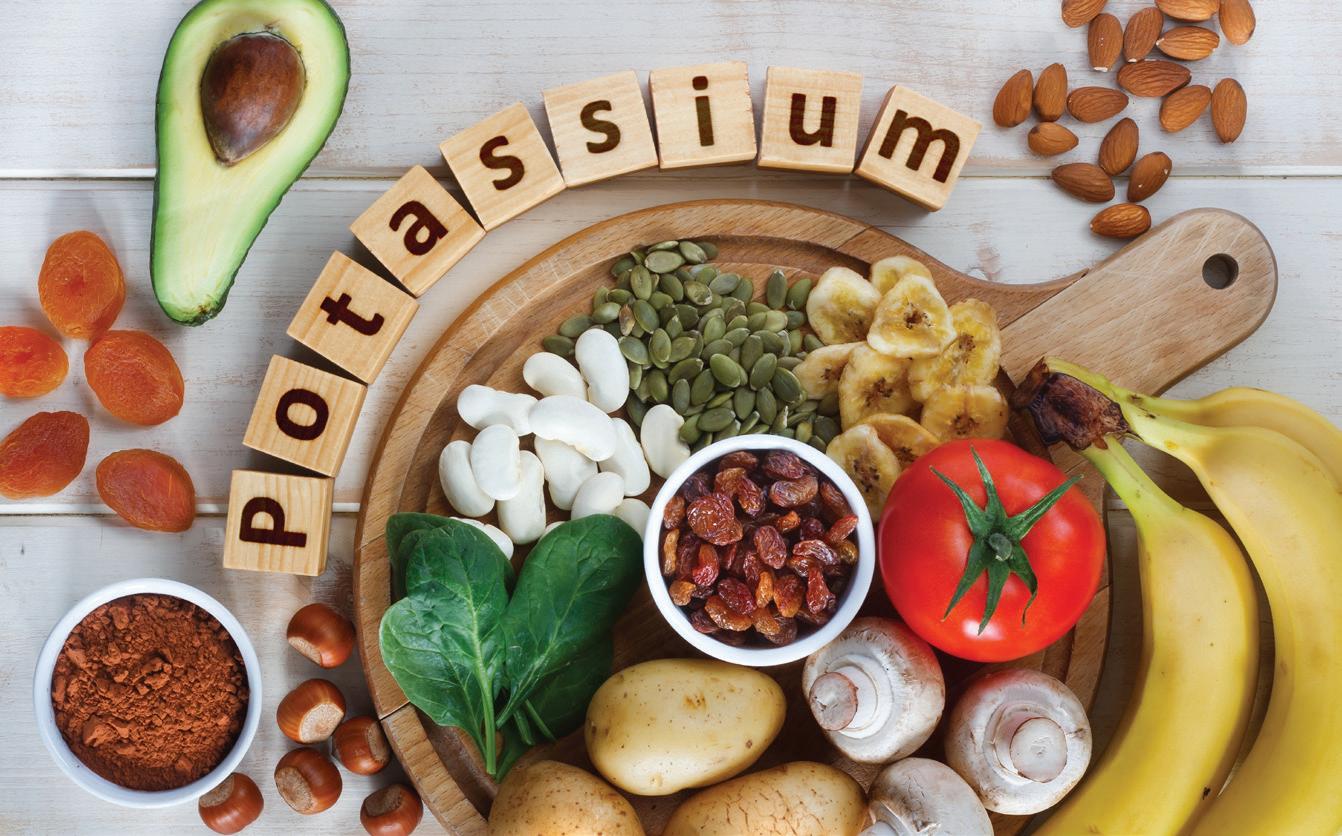
5. Fluid: Decreased kidney function may impact the body’s ability to properly maintain fluid balance. Therefore, fluid restrictions and use of medication may be a part of the nutrition care plan. Fluid balance is important, as excess fluid in the body may lead to swelling of the hands, legs and face along with high blood pressure and shortness of breath.8
For a quick reference of foods that can be used when developing Renal Menus, here is our complimentary Renal Menu Resource Attachment that you can print out and post within your production and serving areas.
References:
1. Facing the Facts. Kidney Foundation, 2020, https://kidney.ca/KFOC/media/images/PDFs/Facing-the-Facts-2020.pdf
2. Aging and Kidney Disease. National Kidney Foundation, 2023, https://www.kidney.org/news/monthly/wkd_ aging#:~:text=Kidney%20disease%20can%20develop%20at,believed%20to%20have%20kidney%20disease.
3. How Your Kidneys Work, 2023, https://www.kidney.org/kidneydisease/howkidneyswrk#:~:text=Each%20kidney%20 contains%20up%20to,then%20passes%20along%20the%20tubule.

4. Canadian Association of Nephrology Dietitian. (2020). Essential Guide for Renal Dietitians 4th Edition.
5. Nutrition and Kidney Disease, Stage 1-4. National Kidney Foundation, 2023, https://www.kidney.org/nutrition/KidneyDisease-Stages-1-4
6. Gang, J. K et al. (2017). Dietary Protein Intake and Chronic Kidney Disease. Current Opinion in Clinical Nutrition & Metabolic Care, 20(1), 77-85. https://www.ncbi.nlm.nih.gov/pmc/articles/PMC5962279/
7. Is Sodium the Same Thing as Salt. Eat Right, 2019, https://www.eatright.org/health/essential-nutrients/minerals/issodium-the-same-thing-as-salt
8. Your Diet and Chronic Kidney Disease. Kidney Foundation, 2022, https://kidney.ca/CMSPages/GetFile. aspx?guid=da447019-9f90-469a-8bce-700320456f9d
9. Phosphorous and Your Diet. National Kidney Foundation, 2023, https://www.kidney.org/atoz/content/ phosphorus#:~:text=When%20you%20have%20chronic%20kidney,your%20bones%2C%20making%20them%20 weak.






































































Legends and spooky tales may be fun around the campfire, but when everyday misconceptions or “myths” get in the way of foodservice teams giving time-and-stress-saving technology a chance, we’re here to set the record straight!
6 Onboarding Myths, Debunked!
Here are the six most common myths we hear from healthcare and senior living industry leaders when it comes to onboarding foodservice management software (and why you shouldn’t let them hold you back from reaping the benefits of technology).

If you’re currently experiencing staffing shortages, you’re certainly not alone. And while you may be thinking that “I can’t focus on technology when I’m trying to attract and retain staff” – we’re happy to tell you that a major benefit to the right foodservice system is the time savings. Automated processes help free up your schedule so you can focus on staff recruitment efforts such as interviews and onboarding. Plus – having an innovative system in place may even help you stand out to prospective staff members.

There’s no doubt that your team’s schedules are already packed to the brim, leaving you thinking: “there’s no way we can spare time to learn something new.”
However, you’ll find relief in knowing that any good dietary software company will have a Project Management team that works closely alongside you, every step of the onboarding process, including training, to design an implementation plan that fits into your overall operations.

With an entire team of differing experience levels to bring up to speed – how can they all possibly be trained effectively?
Know that the best foodservice management software is designed with an easy to use interface to accommodate employees of any experience level and comes backed with a team of experienced trainers who are there for your staff every step of the way. Chances are these trainers work with individuals who are uncomfortable with new technology all the time and can ultimately get them feeling confident working with the software.
We hear this a lot from industry professionals who see the benefits of foodservice management software but have a preconceived notion that it’s out of their reach.

It’s important to consider how much you’re going to save over time. Because foodservice software is designed to enhance the entire operation, everything from time saved time to reducing food waste to displaying show plates on tablets help save significant dollars. And if used properly, often offsets the cost of the program in its entirety!

“It’s Out of My Budget”
After the unforeseen circumstances of the pandemic, communities are continuing to be proactive in their approach to resident health and safety. Implementing foodservice management systems is the best method for managing your food service operation in the case of an outbreak. Even at times where residents aren’t eating in the dining rooms, the software becomes crucial in making sure everyone’s orders are taken, and they’re served a meal that’s safe and enjoyable for them every time.
We say, there’s no better time than the present to take action on your foodservice emergency preparedness!

Are you wondering if you have the right hardware, setup or connection to support a resident dietary system?
Reliable foodservice management software suppliers understand there are multiple pillars to a successful system deployment, and will provide a hardware assessment to determine if your existing environment will be able to support the additional load. This includes Network – the main line of communication which should be involved in discussions leading up to onboarding a software.

Programs like Synergy Tech Suite require very minimum download and upload speed so it’s likely your facility is already able to support the software!
Now that these common onboarding myths have been debunked –we hope you feel comfortable taking the next steps toward allowing foodservice management software to benefit your community! Get in touch with one of our Synergy Technology Experts, and we’ll help make your transition easy (and well worth it).
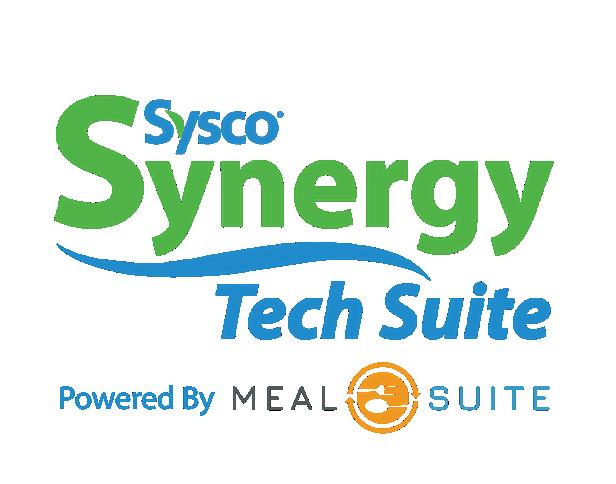



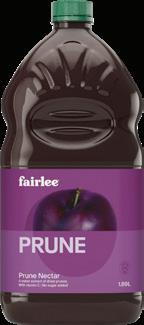



Butterball has been a part of Canadian celebrations for over 50 years.

We make it easy to bring the Butterball tradition to your table with our semiboneless roast and home-style stuffing. Versatile and a high source of protein, Butterball semi-boneless turkey can be served for the main event or enjoyed as everyone’s favourite post-holiday sandwich. It’s a good source of Vitamin B and yields a high meat to bone ratio, resulting in minimal waste.


We use traditional flavours in our homestyle stuffing like onions, celery and parsley to deliver a side dish that requires no preparations and can be cooked in as little as 30 minutes.
SUPC 3294915
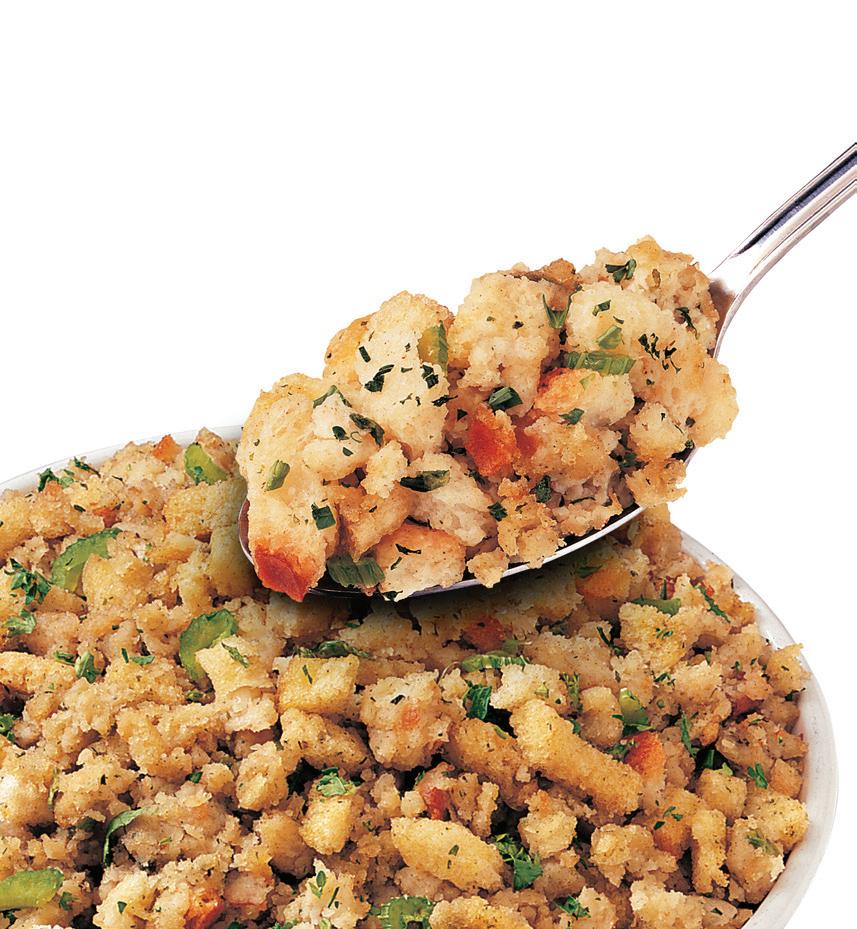
SUPC 5386657
EASY TO CARVE

For more information go to Butterball.ca
No Prep Needed
MADE WITH REAL BREAD
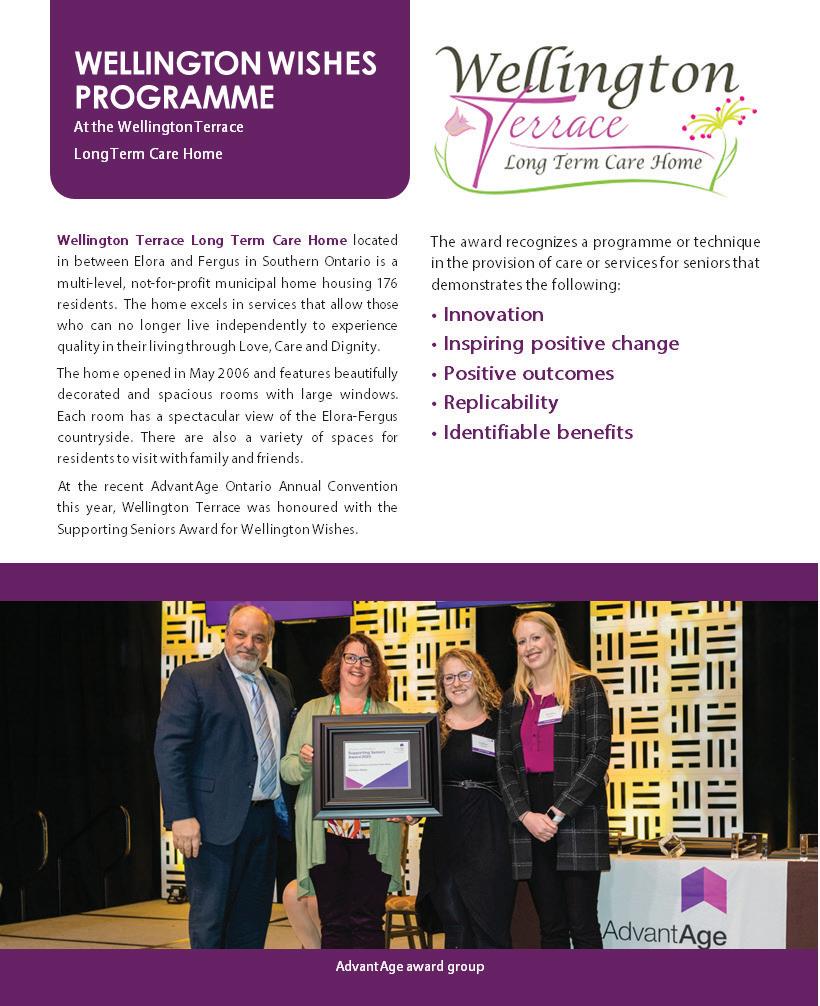
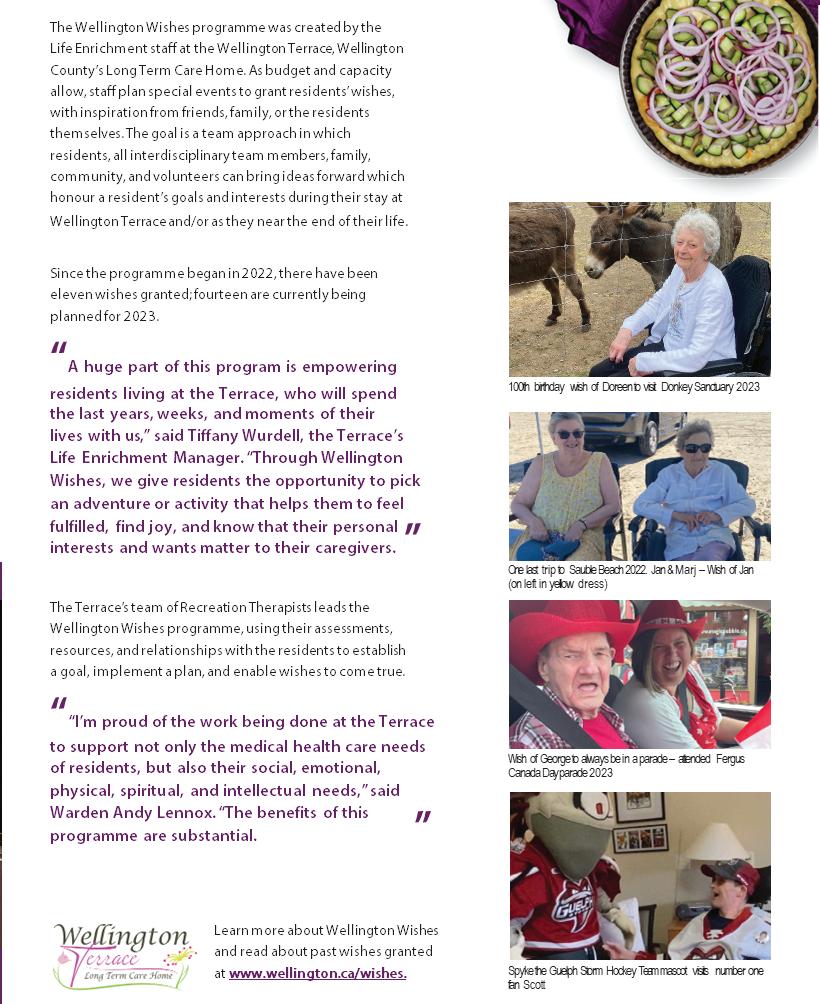
SEPTEMBER
National "I Love Food" Day Saturday September 9th 2023
Oktoberfest Saturday September 16th to Tuesday October 3rd 2023
Yom Kippur Sunday September 24th to Monday September 25th 2023

National Day of Truth and Reconciliation Saturday September 30th 2023
OCTOBER
National Taco Day Wednesday October 4th 2023
Thanksgiving Monday October 9th 2023
World Egg Day Friday October 13th 2023
World Food Day Monday October 16th 2023
National Pasta Day Tuesday October 17th 2023
National Seafood Day Thursday October 19th 2023
Halloween Tuesday October 31st 2023

NOVEMBER
Remembrance Day Saturday November 11th 2023
Diwali Sunday November 12th 2023
DECEMBER
Advent Begins Sunday December 3rd 2023
Hanukkah Thursday December 7th to Friday December 15th 2023
Christmas Eve Sunday December 24th 2023
Christmas Day Monday December 25th 2023
New Years Eve Sunday December 31st 2023
JANUARY
New Years Day Monday January 1st 2024
Elvis Presley's Birthday Monday January 8th 2024
FEBRUARY
Lunar New Year Saturday February 10th 2024
Mardi Gras Tuesday February 13th 2024
Ash Wednesday Wednesday February 14th 2024
Valentine's Day Wednesday February 14th 2024
MARCH
Nutrition Month Begins Friday March 1st 2024
International Women's Day Friday March 8th 2024
St. Patrick's Day Sunday March 17th 2024
Spiced Autumn Bisque Pumpkin Hummus with Crackers
Turkey & Butternut Squash Bake with Zesty Herbs & Walnut Carrots

Cranberry Sage Salmon with Red Cabbage Salad & Roasted Fingerling Potatoes
Caramel Chocolate Almond Loaf Apple Cobbler with Vanilla Ice Cream
Warmed Apple Cider Tea of Coffee
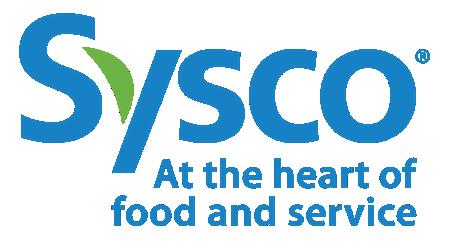

DRINK IDEA: CINNAMON SPICED APPLE CIDER

Tip: Serve a warmed drink with a cinnamon stick
SNACK IDEA: BUTTER TARTS & PECAN TARTS
Tip: Serve individually wrapped tarts as a sweet treat or a snack to save for later


• 30 ml vegetable oil
• 500 g celery, diced
• 40 ml garlic, chopped
• 500 g onions, frozen, diced
• 4.5 kg Maple Leaf Turkey Strips, cookedSUPC 0929406

• 2 kg butternut squash, frozen
• 50 ml parsley, dried
• 30 ml rosemary, dried
• 200 ml parmesan cheese
Add a special touch to meal services with a Thanksgiving day card.
Activity Tip: Create a “Thankful For” Boardhave each resident write down things they are thankful for to add to the board.
1. Heat oil in pan and sauté onions, celery and garlic until tender.
2. Place turkey strips, diced butternut squash, parsley and rosemary in a large baking dish and stir well.

3. Cover and bake at 350F/180 C until internal temperature reaches 165F/74C.
4. Remove from oven and sprinkle parmesan cheese over the top.
5. Bake for 10 more minutes or until cheese has melted.

Gathering to share a meal fosters a sense of community and making meal choices reinforces residents’ autonomy. Both can positively impact quality of life.
Care staff have the opportunity to socialize, support resident meal choices and needs while creating a positive dining experience - all contribute to relationship centered care. (1)


Residents are able to continue to celebrate life’s special moments including holidays, special events like birthdays and welcome changing seasons with some of their favourite foods.



Special events may foster a sense of belonging. Socialization during mealtime has been shown to have strong impacts on improved overall food intake and reduced rates of malnutrition. (2)
Scheduling a few special event menus each month allows for more variety within the menu cycle for residents to try out new recipes or product ideas.



Your residents and staff deserve to feel as comfortable as possible. Mother Parkers Tea & Coffee delivers that cozy feeling in every cup. From solutions that encourage their independence, to back of house stations that make serving simpler, our wide range of coffee and tea products make it easier to provide a full beverage experience.

We’d love to hear from you: mother-parkers.com/contact-us
1/2 gallon
Orange Pekoe Tea Bag
Preparation:
Simply place pouch of tea into brew basket. Make sure bag is flat. Load basket into brewer rails and push brew.





